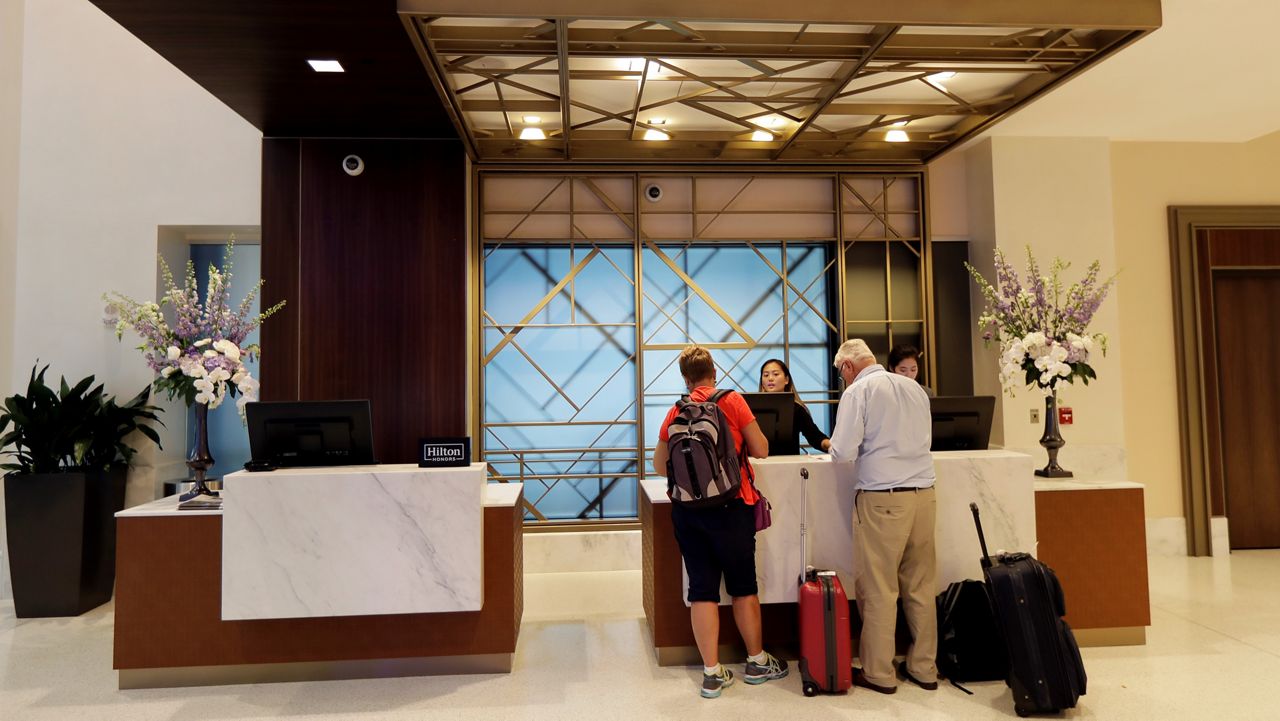LOS ANGELES (CNS) — The Los Angeles City Council gave final approval Tuesday to an ordinance requiring hotels to provide workers with personal-security devices to protect them from violent or threatening guests, while also extending minimum wage requirements to smaller hotels.
The measure, which came to the council thanks to a petition drive that collected more than 100,000 signatures, was approved on a 10-2 vote, with Councilmen Paul Krekorian and John Lee dissenting.
Pending the mayor’s signature, the “Workplace Security, Workload, Wage and Retention Measures for Hotel Workers” will require hotels to supply their workers with personal security “panic button” devices. Hotels with more than 45 rooms will also have to pay wage premiums when giving workloads that exceed specified limits and to get written consent from workers who work more than 10 hours a day. Exemptions will be given to hotels that demonstrate economic hardship.
The ordinance also extends the current minimum wage requirements that apply to hotels with 150 or more rooms to hotels with 60 rooms or more.
The council initially considered the proposal last week, with the option of either adopting it outright or submitting it to voters at the next citywide election. Lee asked his colleagues to send the matter to the ballot, saying he was uncomfortable with quickly approving a measure “that doesn’t provide any type of independent economic analysis” and might have an impact on the city’s transient-occupancy tax revenues. He said such matters “should be decided by a vote of the electorate, not by just turning in signatures.”
The majority of the council, however, disagreed, and voted 10-3 last week to adopt the ordinance outright. Since it failed to receive a unanimous vote, it returned to the council for Tuesday’s final approval.
Councilman Kevin de Leon last week talked about his mother’s work in the hotel industry as he pushed his colleagues to approve the measure.
He called hotel workers “the backbone of our economy in the city of Los Angeles,” noting that many of them are immigrants, people of color and women.
“I know what this job does to people,” he said. “I know what it did to my mother, and I want to make sure that workers like her are treated with the dignity and respect that they deserve.”
Similar hotel worker protections have already been approved in cities such as Long Beach, West Hollywood and Santa Monica.



